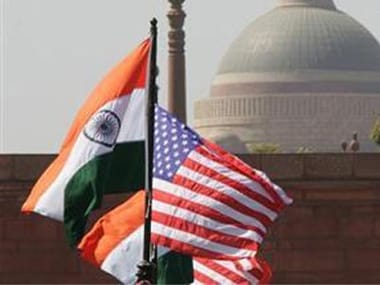Founded strongly in game theory, the doctrine of mutually assured destruction results from erosion of incentives such that both sides neither attack nor disarm, and initiation by either side will result in total damage to both. Yet mutually assured destruction is not just a military or political concept: the recent surge in trade tensions have the potential to cause economically devastating repercussions to both nations. There is much more at stake in the brawls over tariffs and brouhaha over market accessthan expensive chickpeas from Montana or diamonds from Surat. The escalating trade differences threaten to cast a shadow on the bilateral relationship that India and the US have successfully nurtured over the past two decades. While reciprocity rather than retaliation work in diplomacy, international trade and commerce rely on cooperative quid pro quo rather than tit-for-tat. Both nations are on a collision course and they need to quickly swerve. India and the US ought to realize that a trade war is contrary to the economic goals that both have laid out of creating jobs, boosting manufacturing and promoting shared prosperity. Cooperation between the two nations is crucial to nurture the delicate bond between the ideals that democracies foster, and the principles of free markets. This is vital at a time when political and economic ideologies are tilting in a number of other nations. Millions of economically fragile households in India’s voracious economy cannot afford shortages resulting in price rise, and countries around the world are unprepared for another global recession.
India does not have the economic cushion that the Chinese manufacturing dynamo has created, whereas America needs to strategically handle geopolitics ofa region that is a reliable engine driving the world economy. Accelerated and equitable economic growthis not a luxury, but a sacrosanct promise held by democratically elected governments of developing nations.
Appreciatively, both sides have decided to come to the discussion table. At the very least, a jointtrade package will bring some tranquility to troubled markets and will create an environment to discuss more pressing issues around technology-intensive digital trade, investment flow and intellectual property rights. India’s vision of building a resilient manufacturing base by protecting domestic industries is blurred in trade theory as well as international politics. [caption id=“attachment_4339593” align=“alignleft” width=“380”]  Representational image. News18[/caption] Until last year, India was the United States’ 13th largest goods export market and 10th largest supplier of goods imports into the US, while the United States ranked near the top of India’s trade and investment partner list. Whether one likes it or not, the onus on improving the bilateral trade relations is on India, and it must take it seriously. In fact, the US good and services trade balance with India improved in the last two years, coming down from -$29.6 billion in 2016 to -$27.3 Billion in 2017 to -$24.2 billion in 2018.This is due to increase in goods exports by 53% and services exports to India by 25% from 2016 to 2018. It signals that the frustration is not limited to market access for American businesses but perhaps about the sluggish pace of change that can hurt in current global economic climate. More substantively, it encompasses tariffs and quotas in agricultural products, copyright enforcement in creative industries, price control in medical device industry, data localisation policy in e-commerce and strong patent protection of pharmaceutical drugs. An integral part of the US-China trade dispute has been bitterness towards weak intellectual property protection offered by the Chinese and forced transfer of technology from American companies. China’s reliance on administrative tools, including laws restricting foreign ownership and forced requirement of joint-ventures with domestic companies, have frustrated American businesses and policymakers alike. It is argued that the result is coercive transfer of American IP and technology. As a result, Chinese agencies worked together to reprimand IP violations, cutting off state funding to infringers, disallowing them to take up governmental procurement contracts among other concrete actions–but these actions were too little, too late to tamp down growing tensions. India is not China. The spasm of a Section 301 investigation is something the Indian administration is ill-equipped to deal with amidst the ongoing economic slow-down. We have to make efforts to strike a balance between the current and future needs of Indian citizens, be it patients, retail consumers or farmers. Incentives for innovation must be preserved to stop our industries from becoming less competitive and overall business environment lacklustre. For example, the promise of a vibrant Indian bio-pharmaceutical sectorcan only be fulfilled if we promote and protect intellectual property-backed medical innovation in drugs and equipment. It is time to pause and rethink. The world needs the United States of America, and there is no future without India. India will become the world’s youngest country very soon with more than 700 million people in the working age group. If both nations align interests and cooperate on the basis of common values, there will be‘mutually assured success’for the world that will culminate in shared prosperity for our societies. (The writer is Professor & Dean of Jindal School of Banking & Finance)


)

)
)
)
)
)
)
)
)



